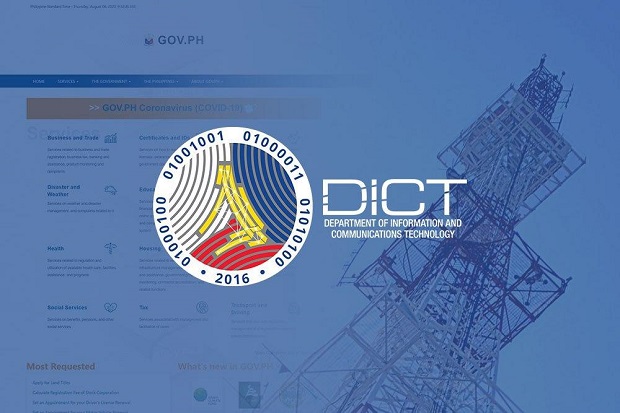The Department of Information and Communications Technology (DICT) said it supports Senate Bill 1738 or the “E-Governance Act of 2020”, which aims institutionalize e-government in the Philippines to cope with the transition to the new normal and the challenges posed by the Covid-19 threat.

While the title of the bill carries the term “e-governance”, the aim of the proposed measure is to actually promote “e-government” which refers to the use of ICT in a government bureaucracy. “E-governance”, on the other hand, is simply the use of ICT in a system that is not necessarily within a government structure.
The DICT said that the bill, once enacted, could complement and enhance its current efforts to transform public service delivery through prioritization of digitalization initiatives.
“Digital transformation should be done with interoperation as a long-term goal and with client experience always as a top consideration,” DICT secretary Gregorio B. Honasan II said.
The proposed legislation aims to establish an integrated and interoperable information system for the whole of government, an internal records management system, an information database, and digital portals for government services. The bill also aims to do away with paper-based and outdated models of bureaucratic work within government agencies and units to improve efficiency.
The bill also envisions the establishment of the Integrated Government Network (IGN) which shall serve as the primary mode of information and resource sharing among the government. It shall serve as the government’s focal information management tool and communications network.
The DICT said is currently focusing on interconnecting government agencies, and integrating their services towards a long-term target of seamless interoperation. The agency said it is focusing on various digitalization solutions under its ICT-enabled government agenda, which includes both a strengthening of existing platforms as well as looking into inter-sectoral initiatives to improve public service delivery for a recalibrated “Digital Government”.
The DICT said it is improving government interconnectivity with the Philippine Government Network (GovNet), which provides government offices with high-speed broadband connection linked to a data center, allowing the processing and transfer of sizeable data for more efficient public services.
GovNet interconnects government agencies to promote better information exchange and improve accessibility of resources. Last June 11, GovNet connected 88 more government agencies in Zamboanga City, comprising of 56 national government agencies (NGAs), 12 local government unit (LGU) offices, six government-owned or controlled corporations (GOCCs), three state universities and colleges (SUCs), two public schools, four Covid-19 facilities, among others.
Presently, 792 agencies in 13 GovNet sites have been connected, with a target total of 463 agencies in six GovNet sites to be connected by the end of this year. Additionally, the Zamboanga-Basilan Wireless Broadband Network was also launched virtually on June 30 alongside the establishment of 20 Free Wi-Fi for All sites to help the province cope with the need for faster information exchange.
Also, the DICT said it is continuously providing services through the National Government Portal (NGP), a centralized platform where citizens can currently access 231 e-government services online for easier navigation.
Another key program to integrate government services is the National Government Data Center (NGDC) Project, which addresses the ICT system needs of government agencies by providing centralized locations where computing and networking equipment shall be housed.
Additionally, the agency is also supports efforts to promote ease of doing business through the National Business One-Stop-Shop (NBOSS), which was launched in partnership with the Anti-Red Tape Authority (ARTA), to allow for simpler business registration process that can be completed within seven and a half days. Similarly, the Central Business Portal (CBP) complements the NBOSS as the online platform that receives business applications and links registrants to the concerned government unit/agency to complete the transactions.
The DICT said it is also gearing for e-government interoperability for 2021 through a portfolio of inter-sectoral initiatives it is currently developing, in line with the recommendations of the “We Recover as One” Report of the IATF-MEID’s Technical Working Group (TWG) for Anticipatory and Forward Planning (AFP).
“We are extending all efforts to transform how we deliver public services, how we transact with the people, and how we move forward in the new normal by maximizing the benefits of information and communications technology,” Honasan said.




